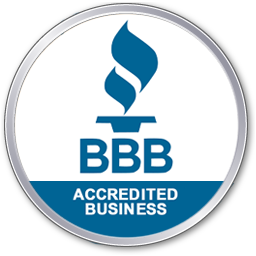Executive Summary
- Underground storage tanks can corrode over time or leak due to structural issues, risking contamination of the soil and the surrounding environment.
- Tank decommissioning and removal is a complex process and requires careful steps to safely remove a tank while minimizing impact on the environment.
- Tank decommissioning often involves several reporting requirements from local environmental agencies to ensure environmental health.
- Consulting a licensed, professional service is one of the best ways to ensure a proper tank decommissioning in line with local regulatory requirements.
Underground storage tanks (USTs) are unfortunately not built to last forever. Over time, they can break down, corrode, and potentially leak into the surrounding soil, posing threats to the environment and human health. If a tank starts to leak, property owners must remove them or decommission them from use to ensure environmental health.
However, due to the risks of working with potentially hazardous material, it’s important to follow careful steps when removing or decommissioning tanks to ensure that you’re not only in line with local regulations but also minimizing your impact on the surrounding environment and ecosystem. Hiring a professional service is one of the best ways to ensure that your system is managed appropriately and in accordance with the law. At Alpha Environmental, we support property owners in Portland and throughout Oregon with tank decommissioning and removal. This guide covers everything you need to know about how to handle the process.
Understanding Underground Storage Tanks
Underground storage tanks (USTs) are used to make materials, often gasoline and oil, more easily accessible on a property, allowing them to be stored in an underground area for convenient use. Heating oil tanks (HOTs) are a common form of underground storage tanks, often storing the fuel necessary for heating homes or businesses.
Some other common uses for USTs include:
- Gas station fuel
- Airport fuel and oil
- Dry cleaner chemicals
- Automotive shop
- Septic tanks
However, underground storage tanks do not last forever, and it’s a common issue for these tanks to go out of commission as they age or break down. How long a tank lasts before needing to be replaced depends on the material of the tank, the contents, and the acidity and makeup of the soil.
Signs It’s Time for Removal
A UST that is past its lifetime can leak and contaminate surrounding soil and groundwater, leading to environmental and public health threats. Unfortunately, spotting an underground storage tank leak isn’t always easy. Therefore, it’s crucial that UST owners closely monitor the location of their tank and know what signs to look for.
A tank can start to leak for reasons like defects in the construction, improper installation, corrosion, age, or mechanical failure. Often, USTs can begin to leak from joints or pipes connected to them rather than the tanks themselves. In some cases, property owners simply need tank decommissioning because they have no more use for a UST.
Some signs that it’s time for tank decommissioning or removal include:
- Faster consumption – If the fuel or the contents in your tank do not last as long as they used to, it could be a sign that they are escaping through a leak in your system.
- Spots of moisture in the ground – Signs of moisture above a UST can be a sign that the contents are seeping up through the soil due to a leak or corrosion in the tank.
- Smells around the area – Smells of fuel vapor or the contents of a UST when standing above the area can signify that materials are being released through a leaking or corroded tank.
- Abnormalities in your basement – If you smell fumes from fuel or oil in your basement or see staining on the walls or floors of your basement, you may have a leaking tank.
If you notice any of these signs, you should contact a professional service to identify whether your system has a leak and how to address it. A licensed contractor will be able to help you determine next steps.
The Underground Storage Tank Removal Process
The process of removing a tank is a detailed one and requires careful steps to ensure environmental health and public safety. While removing a tank, a professional must mitigate the dangers of handling potentially hazardous waste, minimize the risk of contaminating the surrounding environment, and comply with local regulations.
To remove or decommission a UST safely, one must follow these steps:
- Notify local governmental authorities – Local and state often require advance notice for removal of USTs and reporting after the fact. In Oregon, you must submit a notice to the Department of Environmental Quality (DEQ) 30 days in advance and call your local DEQ office three days before starting work.
- Find a licensed contractor – In many states, it’s required to hire a licensed contractor to remove a UST. Plus, with the meticulous process involved, property owners are better off trusting a licensed contractor for safety and efficiency.
- Empty the tank – Before removing the tank, experts will remove any residual materials to reduce the risk of exposure to the surrounding environment. Often, the materials are flammable or toxic, so experts must follow proper hazardous waste disposal practices.
- Inert the tank – The buildup of vapors in the tank after cleaning it can lead to an explosion risk. Professionals will fill the tank with less flammable gas, like nitrogen or carbon dioxide, to eliminate this threat and allow for safe removal of the tank.
- Excavate the area – Contractors must remove all soil above the tank to access the vessel. This requires heavy machinery and experience.
- Clean and remove the tank – Once all of the contents have been removed, experts will remove any connected pipes or lines to allow for a smooth removal and disposal of the tank.
- Manage contaminated soils – If a tank was leaking, it’s likely that the soil surrounding the tank is contaminated. Professionals must identify the scope of the contamination and dispose of the contaminated soil with respect to state and federal guidelines.
- Gather samples – Not all contamination is clearly identifiable to the naked eye. Detailed soil sampling can help experts to understand the full extent of potential contamination and exposure.
- Closure reporting – Finally, removing a tank often requires a closing report to local agencies, compiling information from the soil and groundwater samples, a map of samples gathered, documentation of how components were disposed of, documentation of any necessary soil disposal, and more.
There are some circumstances where a tank is permitted to remain in the current location—typically, if the removal process would pose a risk to the foundation of the building or to the surrounding environment.
This process usually involves filling the tank with a slurry, sand, or concrete and requires registering the tank with the local or state government agency, like the Oregon Department of Environmental Quality, that oversees USTs.
Alpha Environmental supports you with your underground storage tank, providing tank sweeps, tank decommisioning, UST removal, and more.Professional Underground Storage Tank Services
Decommissioning USTs: Ensuring Environmental Safety
A key priority during a UST decommissioning is to minimize the impact of a UST on the environment. If handled improperly, leaking materials from USTs can seep into surrounding soil, groundwater, and local waterways, posing threats to fish, wildlife, and people.
To ensure environmental safety, home and business owners must comply with local regulations surrounding tank decommissioning and removal. For example, in Oregon, state law requires homeowners and businesses to hire a licensed service provider to decommission a heating oil tank. This requirement ensures that the process is handled by experts who will handle materials properly and understand the risks to the environment.
Local regulations also require several reports to document any potential impacts of the tank on the environment. Reporting requirements in Oregon include conducting an HOT decommissioning report and a HOT soil matrix cleanup report.
Professionals removing a tank must also comply with Environmental Protection Agency (EPA) requirements regarding record-keeping, clean-up, and leak detection surrounding decommissioned tanks.
Environmental Concerns and Mitigation
Contents from USTs can remain in the soil and groundwater, harming local plants and wildlife. Throughout the UST decommissioning and removal process, it’s crucial to take steps to mitigate the risks of materials from the tank contaminating the surrounding environment.
To mitigate these environmental concerns, local regulations require several steps. For example, the State of Oregon also requires reporting to ensure that the tank decommissioning process accounts for environmental health.
Within 30 days after decommissioning the tank, you must submit a Decommissioning Checklist and Site Assessment Report, indicating that you followed all necessary steps in removing a tank and did the proper diligence to protect the surrounding environment. A decommissioning process is not considered complete until a local DEQ office receives this form.
If the tank is to remain on the property, local regulations require registering the tank with the Oregon Department of Environmental Quality so that the location and potential hazards are clear.
For the sake of preserving long-term environmental health, there is also a required Investigation of Magnitude and Extent of Contamination. This form ensures that those who remove a tank understood the full environmental effects of a tank leak and took steps to address it.
Benefits of Professional UST Removal Services
Removing a UST is a detailed process, and improper tank decommissioning can lead to environmental and public health risks. Turning to a professional service offers peace of mind that the process is handled correctly. Experienced and professional UST removal services ensure a safe removal while following all local regulatory guidelines.
At Alpha Environmental, we follow a safe and thorough process to decommission and remove storage tanks. With over 21 years of experience serving residents in Portland and throughout Oregon, we understand the necessary steps and regulations to follow when decommissioning a tank, saving property owners considerable time and stress. If you’re unsure whether there’s a heating oil tank on your property, we can also conduct a tank sweep to inspect.
Contact Alpha Environmental for professional underground storage tank decommissioning or answers to your questions about underground storage tanks.




